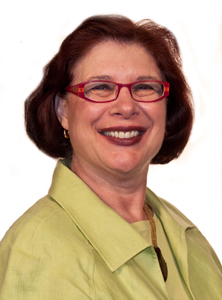The excitement was palpable as 1 p.m. approached Feb. 3 for those of us waiting to hear U.S. Senator Kirsten Gillibrand speak on campus. At 1:10 p.m., when the side door opened, we all rose to enthusiastically applaud her and quickly snap our photos in anticipation of her speech. And what a speech it was. Thirty minutes of well-articulated points to improve the social fabric of our lives — specifically the lives of women in the U.S.
I attended the talk not only as a Spanish instructor, but also as a mother and a grandmother. I admire Gillibrand because she understands that women in particular are impacted by aging or sick family members, day care needs, availability of Pre-K programs and equal pay for equal work. We are typically the caregivers, and Gillibrand has a vision to improve social issues for women. Without the vision of her five point American Opportunity Agenda, women will continue to be disadvantaged and compromised, socially as well as economically.
Like many of the adults in the audience, I have had to help care for a sick parent while managing a career. Fortunately, I had “family sick time” from the college, but I know that not all employees are so lucky. Without the Family Act, I wonder how my daughters and my students will deal with that responsibility in years to come.
My older daughter, an alumna of Ithaca College, spends more on day care for her two children than she spends on her mortgage. She does it because quality day care is a necessity for a working mother; but it is a significant part of her family budget. What will be the cost of day care for my college students’ children?
On the topic of student loans, Gillibrand advocates consolidation rates of 3 percent. I think about my younger daughter, who is burdened with heavy graduate student loans and paying upwards of 7 percent in interest each month with a modest first-year salary. My daughter and my students have overwhelming financial responsibilities, and I know that they are equally distressed about them.
After I got my first teaching job, I found out that married male teachers were paid at a higher rate than I was because “they needed to support a family.” That was more than 35 years ago. Change is slow. What ever happened to “You’ve come a long way, baby?”
Now, who can argue that raising the minimum wage to $10.10 wouldn’t help families? I know that the caregivers of my grandchildren are not earning that much. Our children are in their care for six hours a day. This is a critical responsibility that merits professional salaries with benefits. Gillibrand’s solution seems fair and equitable to me. It is still inadequate to support a family well, but at least it is a start.
I was proud to have heard Gillibrand speak at our college to our students. I hope that young women in the audience were listening — really listening to her message. I particularly liked the insightful answer she gave when asked how she juggles her personal life with her professional life. She smiled, sighed and said that balance was, indeed, a challenge that required flexibility — a luxury which all women do not necessarily have. Gillibrand is a passionate leader in the U.S. Senate, and she brought that passion to the podium for all of us to experience.














